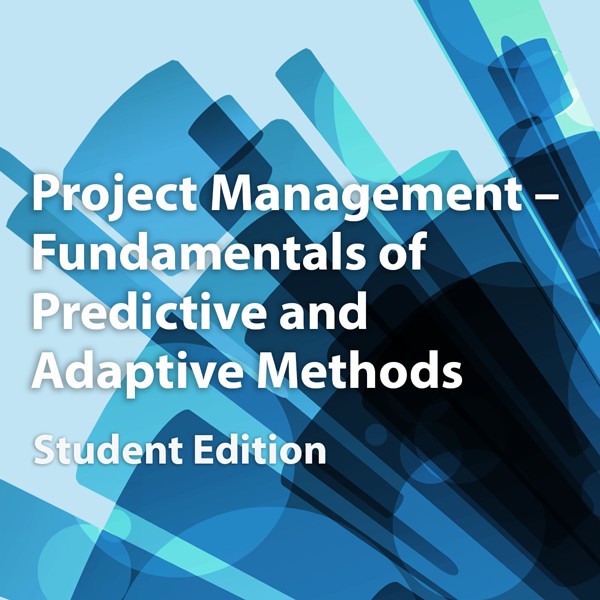
Project Management-Fundamentals of Predictive and Adaptive Methods, Student Edition
Project Management: Fundamentals of Predictive and Adaptive Methods
Course Specifications
Course Number: ELK95–032_rev1.0
Course Length: 2 days
Course Description
Successfully managing a project requires effective planning and adherence to the industry's best practices in every step of the process. By mastering the fundamentals of project management, you will be better prepared to initiate a project in your organization and position it for success. In this course, you will identify effective project management practices and their related processes.
At this point in your professional development, you are ready to take on the responsibility for managing projects. You can manage a project by developing a solid understanding of the fundamentals of project management and its underlying structure and elements, including project phases, project life cycles, stakeholders, and areas of expertise. These, coupled with the ability to identify the project management processes that are recognized industry wide as good practice, will help you to apply effective project management techniques to improve the efficiency of your projects and ensure their success.
Course Objective: In this course, you will identify the elements of sound project management and apply the generally recognized project management practices to successfully manage or participate in projects.
You will:
- Identify the key processes and requirements of project management.
- Initiate a project.
- Use a Predictive approach to plan for time and cost.
- Use an Adaptive approach to plan a project.
- Plan for project risks, communication, and change control.
- Manage the execution of a project.
- Close a project.
Target Student: This course is designed for individuals in a variety of job roles whose primary responsibility is not project management, but who manage projects on an informal basis; who contribute as members of a project team; or who wish to incorporate project management practices into their personal work. It is also beneficial for anyone who is considering a career path in project management and desiring a complete overview of the field and its generally accepted practices.
This course is designed to cover various project management approaches and is not intended to focus on a single methodology or framework.
Prerequisites: To ensure your success in this course, you should have some basic computing skills. Some experience using Microsoft Office is desirable but not required.
Having some on-the-job experience with project management—either as a team member or project leader—is helpful but not required.
Hardware Requirements
For this course, you will need one computer for each student and one for the instructor. Each computer will need the following minimum hardware configurations:
- Sufficient processor speed, RAM, and storage space for good system performance when running Microsoft Office apps.
- Mouse, keyboard, microphone, and monitor.
- High-speed, stable Internet connection.
- For the instructor's computer, a method to project and/or share the screen as needed for local and remote class participants.
Software Requirements
- Microsoft® Windows® 10.
- Microsoft® 365 Office apps (Word and Excel) for accessing student data files.
- If necessary, software for viewing the course slides. (Instructor machine only.)
Course Content
Lesson 1: Getting Started with Project Management
Lesson 2: Initiating a Project
Lesson 3: Planning for Time and Cost in Predictive Projects
Lesson 4: Planning for Adaptive Projects
Lesson 5: Planning for Project Risks, Communication, and Change Control
Lesson 6: Managing a Project
Lesson 7: Closing a Project
Appendix A: Using Earned Value Analysis
